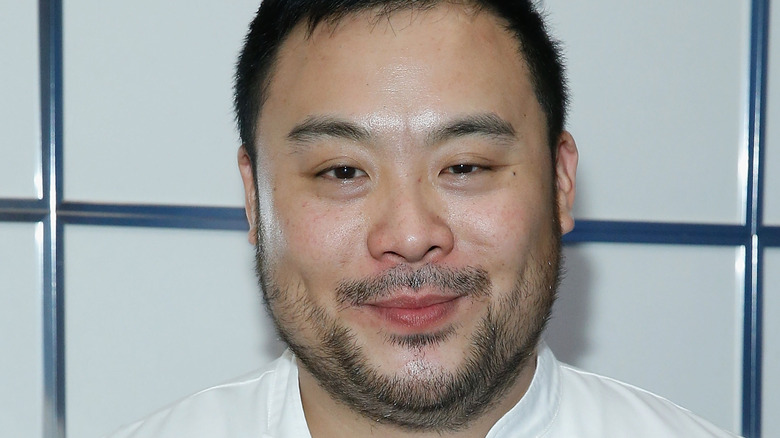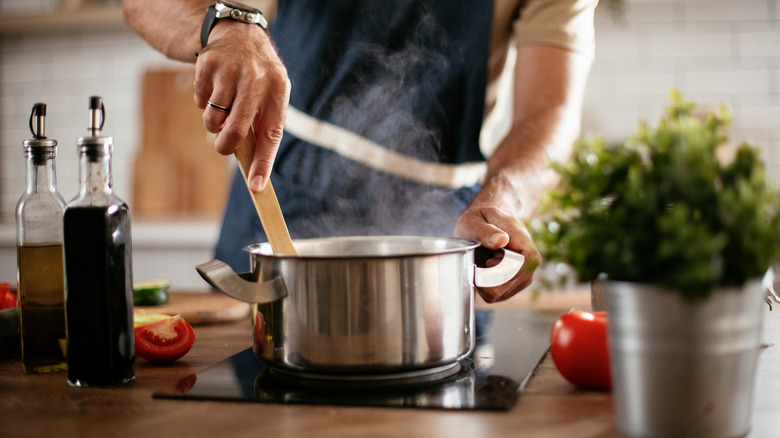Why It Pays To Improvise In The Kitchen, According To David Chang
Improvising in the kitchen can be nerve-racking for even experienced home cooks, but if there's anything in the world that should make you less nervous, it's listening to advice from David Chang. The award-winning chef and founder of the Momofuku restaurant group is one of the most esteemed cooks in America, and since the beginning of his career, improvising in the kitchen has been an important through line in his success. One of Momofuku's biggest hits, a pork belly steamed bun, was an in-the-moment improv dish based on Peking duck buns that Chang threw together with already available ingredients from other menu items. That moment of risk and inspiration afforded him the opportunity to turn out one of the restaurant's most famous dishes and helped put him on the culinary map.
You don't have to be building a food empire for kitchen improvisation to be useful, according to Chang (via YouTube); creating outside of fixed recipes helps you learn how ingredients work together, and just makes you a generally better cook. Chang admits that "cooking without a safety net" might not be something you want to do with a crowd, but at home it helps you become a more attentive, mindful cook. "It can be scary, but also I think it teaches you how to think," he says. Finding a surprise flavor combination that tastes great unlocks entire new areas of kitchen knowledge, and makes you a more active participant in the process.
Improvising in the kitchen teaches you how cooking really works
It may seem obvious to say, but you learn by doing, and Chang's wisdom in the kitchen advises that you aren't really "doing" if you're only following recipes beat by beat. You may always add garlic to a favorite dish that calls for it, but you don't understand the recipe until you remove the garlic and see how flat it tastes. Improvising is important because a mistake can teach you just as much about the nature of an ingredient or a dish as a success, and like many other creative skills, you don't get better until you push your comfort zone. A big part of Chang's experimentation with food rests on the recognition of patterns of flavor across cultures, like the meaty, creamy, slightly spicy combination that unifies Chinese mapo tofu and Italian Bolognese. That's the kind of base level knowledge about how ingredients work that comes with trying things outside of a recipe's limits.
You don't have to go far to make this work, in fact Chang suggests that having some fundamental kitchen knowledge is the key to improvising well. Doing basic research like reading cookbooks is important in understanding how ingredients work. It's also wise to look to other cultures and how they use ingredients as inspiration for your own creations. The best cooks rely on the knowledge others have gained while slowly pushing boundaries to eventually build their own.

